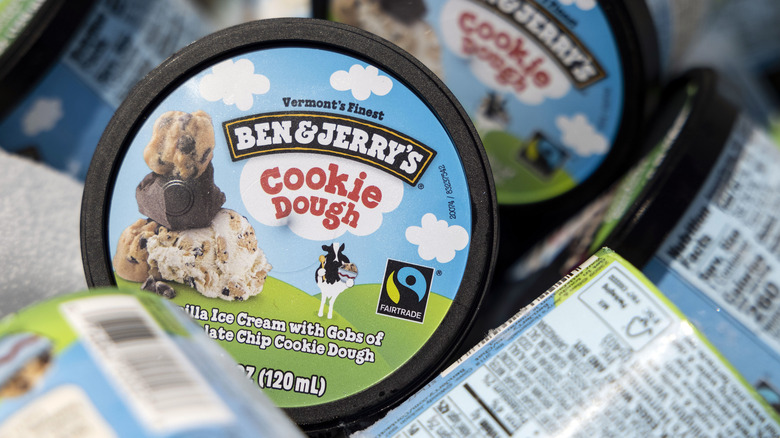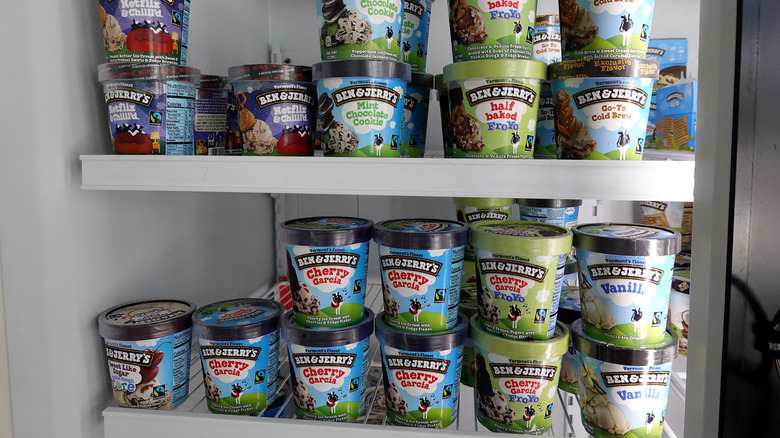Ben & Jerry's, Magnum Ice Cream May Reformulate To Cut Energy Costs
Ben & Jerry's manufacturer Unilever is preparing to take its next step on the road to having more sustainable ice cream freezers. The first thing that comes to most people's minds when they think of greenhouse gasses warming up the planet is typically not ice cream. However, according to Unilever, ice cream freezers account for 10% of its value chain emissions, which are emissions caused by a company's product but not by assets owned or entirely controlled by the company. The Wall Street Journal notes that most of the small, top-opening freezer chests consumers see holding small tubs of Cherry Garcia and other individual ice cream treats in their local convenience stores or supermarkets are in fact manufactured and sold or leased to retailers by Unilever as part of their distribution package. Keeping them cold, however, guzzles tons of power.
In order to combat this issue, Unilever announced in May 2022 that it would be experimenting with reformulations of its ice cream brands, including Ben & Jerry's, Magnum, and Wall's, which would allow them to be stably sold at higher temperatures. This would reduce the energy needed to keep them cool, thereby reducing greenhouse gas emissions and energy costs for retailers.
Heating things up
The Wall Street Journal reports that the massive UK-based consumer packaged goods brand has completed its first study on the issue in Germany and plans to launch a second phase this year in Indonesia. The goal of the experimentation is to find a formulation of the ice cream that will retain each individual product's unique taste, firmness, and "mouth feel" at higher temperatures. Currently, retail ice cream freezers, including Unilever's, are set to 0 degrees Fahrenheit (-18 degrees Celsius), and the goal is to increase the temperatures to about 10 degrees Fahrenheit (-12 degrees Celsius), cutting energy use for each freezer by 20 to 30%.
The WSJ notes that this is a high priority for Unilever and is expected to last for several years. The German study determined which ice creams will potentially need to be reformulated, while the Indonesian tests will include melting point observations and taste tests of the new formulations. If successful, the brand will move forward with plans to begin updating freezers in nearly 60 countries, though that effort itself could take years.
One potential issue for retailers in this plan, however, is that many businesses use the Unilever freezers to store other brands' ice cream products as well, which could lead to melting problems. Unilever says that it is not attempting to run competitors out of the market though, and told the WSJ that it intends to share its reformulation results with other brands so they could potentially join in on the energy-saving efforts.

